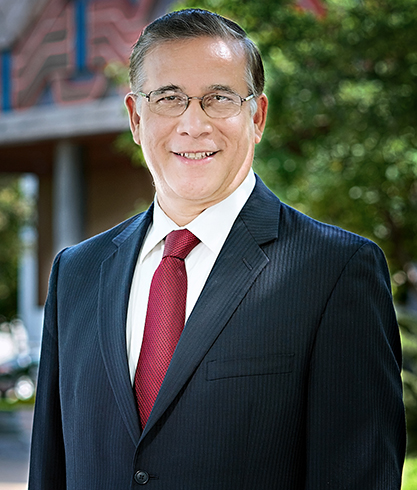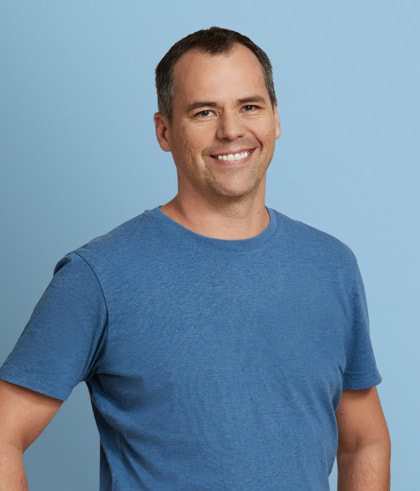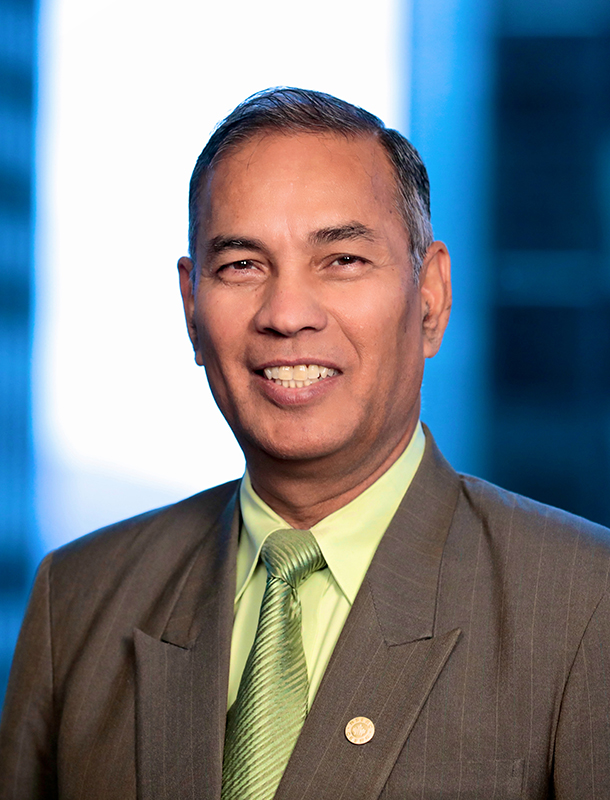Overview
Thank you to everyone involved in our successful 2019 conference!
Please click on the link below to view highlights of the beautiful city of Ottawa!
Registration
Registration is closed
Rates
Regular Rates
Professional Rate: $675.00
Student Rate: $250.00
Early Bird Rates
Professional Rate: $575.00
Student Rate: $225.00
Sunday Workshops
CEEA-ACEG Member Workshop Registration
This year, we are offering the regular Sunday workshops, as well as three all day workshops that will run concurrently on Saturday (so please choose only one): the Institute for Engineering Teaching, the Institute for Engineering Education Research, and the CEEC Project Buildathon 2. Registration for ALL Workshops is required prior to arriving on site to allow for proper planning of the organizing hosts and facilitators.
- The Institute for Engineering Education Research runs all day Saturday. It costs $200 + HST for CEEA-ACEG members.
- The Institute for Engineering Teaching runs all day Saturday. It costs $200 + HST for CEEA-ACEG members.
- The CEEC Buildathon 2 runs all day Saturday. It costs $50 + HST for CEEA-ACEG members.
- Sunday Workshops are $100 for CEEA-ACEG members and that covers as many Sunday workshops as you like.
Non-member Workshop Registration
We offer workshop registration for non-members through Eventbrite (here).
Each institute is $250 plus HST, the CEEC Buildathon 2 costs $55 plus HST, Sunday workshops are $125 plus HST. Please ensure that you list which workshops you will be attending on the EventBrite payment page.
Venue
CEEA-ACEG 2019 will take place at the uOttawa campus.
For information about the location of the campus please go to:
Conference locations
Learning Crossroads (CRX)
100 Louis-Pasteur private
Ottawa, ON, K1N 6N5
The new Learning Centre, which opened in 2018, will offer a variety of meeting spaces, including active learning classrooms, amphitheaters, case-based learning seminar rooms, and standard classrooms to accommodate the conference sessions. The building will boast advanced communications technology such as 8K video walls, video conferencing and high-quality screens that will enhance the experience for all participants.
STEM Complex
150 Louis-Pasteur private
Ottawa, ON, K1N 6N5
The STEM Complex is an interdisciplinary research and teaching facility offering innovative spaces to enable experiential learning, to promote entrepreneurship and to encourage collaborative work. It is home to the Richard L’Abbé Makerspace, the open concept Entrepreneurship Hub, and the Brunsfield Centre largescale prototyping space and will serve as the exciting venue for the conference’s special events.
Where to stay
A block of rooms has been reserved at a discounted rate at the following accommodations for June 7th to June 13th.
On-campus:
A limited amount of rooms are available in the following on-campus residences:
Rideau Residence – 290 Rideau street
Residence 90U – 90 University Private
RATE: $125 per unit, per night. Taxes applicable.
Reservation link: https://www.accommodation.uottawa.ca/?L=en-CA
Promotional Code: CEEA2019
Select the dates : June 7-13 2019 (note that your reservation must be within these dates for the special rate to apply)
Cut-off date for reservations: April 20, 2019
Accessible rooms: client should contact us directly at 1-888-564-4545.
Near campus:
Premiere One Bedroom Suites: $209.00/night (Single – Double Occupancy)
Premiere Two Bedroom Suites: $329.00/night (Single – Quad Occupancy)
Please quote group code: 164023
Reservation link: CLICK HERE
Notes:
-
- Complimentary Wireless High Speed Internet.
- Rates subject to applicable tax and fees.
- Suites are subject to availability – please ensure to create your reservation!
- Parking is an additional $23.00CAN/day (plus applicable tax) with unlimited in/out access.
Reservations can also be made by calling the hotel directly:
Reservations: (613) 232-2000
Toll Free: (800) 267-1989
By email: [email protected]
Andaz Hotel
Andaz King: $249.00 (Single – Double Occupancy)
Andaz Queen/Queen: $249.00 (Single – Double Occupancy)
Group reservation link: CLICK HERE
Deadline to take advantage of the group rate is May 9th.
Reservations can also be made by calling the hotel directly:
Tel: (613) 321-1234
Email: [email protected]
Papers
CEEA-ACEG 2019 Call for Papers
Contributions to the conference are in the format of posters, presentations or panel discussions.
Important Dates
CEEA-ACEG 2019 – June 9–12, 2019 in Ottawa, Ontario
- Extended abstracts for all types of presentations and workshop proposals due: January 7, 2019 – January 14, 2019
- Papers from authors opting to undergo a full peer-review process due: February 18, 2019 – March 4, 2019 (new)
- Notification of acceptance for extended abstracts abstract proposals of non-peer reviewed manuscript submission: March 14, 2019
- Notification of acceptance for peer-reviewed papers: March 28, 2019 – April 15, 2019 (new)
- Registration opens: April 2, 2019
- Final submission of all papers (peer reviewed and non-peer reviewed) due: May 6, 2019
The Annual Conference of the Canadian Engineering Education Association will be held at the University of Ottawa, Ottawa, ON, from June 9–12, 2019, with the theme of “Learning to learn.” This overarching theme will be supported by the following sub-themes, all of which will help direct the organization of the conference into its various sessions: Engaging the Broader Engineering Community; Facilitating Student Engagement; Creativity and Innovation in Engineering; Pedagogy in Engineering; New Teaching and Learning Paradigms; The Engineering Design Experience; The First Year Student Experience; Towards an Outcomes-Based Education: Approaches, Assessment and Accreditation.
Engineers will form an integral part of the global leadership team that will handle the difficult challenges of the 21st century. To ensure they are successful in these tasks, we must, in addition to providing technical training, foster the development of a wide range of educational, career, and life competencies in our students. Come join us for important conversations about practices and strategies that positively impact student abilities, resourcefulness, persistence, and success.
Call for Papers: We invite papers written in English or French on all topics of engineering education. Attendees will have an opportunity to showcase, learn about, and discuss engineering education through a variety of session types. Participants will be asked to classify their work into one of two streams (teaching practice or educational research), and to identify their preferred presentation mode.
Authors submitting full papers will be provided feedback and will have until May 6, 2019, to submit a final paper with revisions, if revisions were requested. Authors who attend to the requested revisions will have their papers marked as “peer reviewed” in the conference proceedings. Authors who are not requested to complete revisions will also have their papers marked as “peer reviewed” in the conference proceedings. Authors who decide not to submit a revised paper will still be invited to participate in the conference, without the “peer reviewed” indication in the conference proceedings. All CEEA-ACEG authors will be required to review two abstracts and papers.
Both streams cover works that relate to teaching, learning, assessment, accreditation, student support, professional development, and other aspects of engineering education. The differences in the streams are as follows:
- Engineering Education Practice (“Practice”): includes accounts of innovations, experiences, and evidence-based practices in engineering education.
- Engineering Education Research (“Research”): includes reports of thorough investigations, meta-analyses, and data-informed development of new methods, tools, and frameworks.
Sessions will be 80–90 minutes in length, with three different presentation modes:
- Poster Sessions: These sessions are designed to facilitate dialogue between presenters and audience members.
- Podium Talks: These sessions are reserved for work in either “Research” or “Practice” streams. These are 10 min. (+ 5 minutes Q&A) that aim to present larger scale, completed work. Presenters will be sorted into different categories based on their ranked preference, the criteria listed above, availability, and session themes.
- Panel discussion: Panel discussions are designed to facilitate dialogue between panellists from different institutions, different sectors (for example industry and academia) and audience members. In the case of a panel proposal, the moderator will need to coordinate with the panellists and send a proposal including the name of the panellists and the abstract.
Extended Abstract Submission: All authors, regardless of the stream or presentation type, are invited to submit a one-page extended abstract (approx. 500 words) via EasyChair by January 14, 2019, alongside a declaration of (A) appropriate stream and (B) preferred presentation mode(s). All abstracts will be reviewed and evaluated based on how they address the following elements, as appropriate:
- Motivation for the work (as part of this, papers and posters are expected to include relevant references to the literature)
- Clear conceptual/theoretical framework
- Comprehensible description of method and methodologies
- Results/conclusions of interest to the membership
For panel discussion and poster sessions, full papers are not mandatory, but are encouraged.
Peer-reviewed Paper Submission: The abstracts will be reviewed for their overall suitability in the conference. Authors will then be invited to submit their full 4–8 page papers by a subsequent deadline of February 18, 2019. These papers will be evaluated based on the criteria listed above, and will either be accepted, accepted with revisions, or not pass the peer review process. Accepted papers will be published in the conference proceedings and marked peer reviewed. The final version of peer-reviewed papers is due on May 6, 2019. In addition, each author will need to agree to review two (2) other paper submissions if they wish for their paper to be published in the proceedings as a “peer-reviewed” paper.
Author Guidelines for CEEA Proceedings Manuscripts
ENGLISH printable pdf: CEEA-ACEG_AuthorGuide_v2019_EN.pdf
ENGLISH Word doc (download only): CEEA-ACEG_AuthorGuide_v2019_EN.DOCX
Other Opportunities
A. Workshops: We invite proposals for workshops covering relevant aspects of teaching and learning in engineering. Workshops on practices that positively impact the engineering teaching environment and students’ abilities, resourcefulness, persistence, and success are particularly sought. Topics of interest include:
- Engineering education research methods;
- Best-in-class engineering education practices or teaching tools;
- Implementation of educational technologies;
- Best practices in professional development for engineers;
- Professional development needs identified by practicing engineers and employers;
- Initiatives that support diversity in engineering;
- Support of student mental and emotional wellness;
- Initiatives for co-curricular student development;
- Continual improvement based on CEAB graduate attributes analysis.
Workshops last 90 minutes. Proposals for workshops spanning two or more 90-minute periods will be considered. All regular workshops are scheduled for Sunday, June 9, 2019.
Workshop proposals can be submitted by completing the following form (deadline January 14, 2019):
Workshops will be considered based on clarity, level of detail, interactivity and relevance to engineering education.
B. CEEA-ACEG Institute for Engineering Teaching and Educational Research (IETER): CEEA-ACEG Institute workshops are opportunities to dive deeper into the practice of teaching and course design and/or education research, all with a distinct engineering focus. The IETER will run on Saturday, June 8, and further details will be published prior to the commencement of conference registration.
- Principles and Practices for Engineering Course Design Series: A cohesive set of workshops for both new and experienced faculty to learn more about effective, research-informed teaching practices and course design methods. This series will provide an opportunity to learn a wide range of topics, as well as to engage with colleagues from across the country. Facilitated by experienced engineering faculty along with experts in teaching and learning, participants will leave with concrete directions for the upcoming academic year. Mentoring and networking activities will be added to the series to further enhance the workshop and conference experience for participants.
- Getting Started with Engineering Education Research Workshop: The goal of this session is to provide support and instruction in setting up and running a research study in engineering education. Participants will learn about methods used in rigorous engineering education research, and will practise developing a research question and designing a research study plan.
C. Undergraduate Student Poster Competition: As part of the student program at the conference, undergraduate students are encouraged to create a poster and enter it in competition. The poster should showcase the student’s involvement in a project that contributes to the understanding or improvement of the educational experience for Engineering students.
Due to several requests the submission period for the student poster competition has been extended to May 6th at 23:59 PST. Submissions are to made through EasyChair according to the instructions indicated there and must be received by the due time and date. (Note that only an abstract is required – no paper submission is required here.)
The posters will be evaluated by a panel of judges on the following categories: 1) relevance to the conference, 2) originality, 3) rigour, 4) visuals, and 5) communication. Students will have 5 minutes to present their findings and 3 minutes to answer the questions of the judges. One winner and two runners-up will be chosen and awarded monetary prizes.
Poster teams that include one or more undergraduate students will receive a single registration waiver that can be applied to an undergraduate member, provided that member is responsible for the 5 minute presentation.
Schedule
June 9, 2019
08:45 - 10:15
10:30 - 12:00
13:00 - 14:30
14:45 - 16:15
16:30 - 18:00
18:30 - 20:00
Welcome Reception (BBQ)
June 10, 2019
08:00 - 09:00
Conference Registration and Breakfast
09:00 - 09:30
Opening Remarks
09:30 - 10:30
10:45 - 16:45
June 11, 2019
08:00 - 09:00
Conference Registration and Breakfast
09:00 - 10:00
10:15 - 16:00
14:00 - 15:30
Makerspace Challenge
14:00 - 16:00
Poster Session and Snacks
18:00 - 21:00
Banquet
Speakers

Keynote Speaker: Jaime Bonilla (Tec Monterrey)
Educating beyond expectations
June 10, 2019, 09:30 - 10:30
A hyper-accelerated changing world is waiting for the engineers that we -the universities- are forming today. Their readiness to tackle new problems and their ability to create value is under a considerable pressure from the university stakeholders. In addition, there is the perception that knowledge it is just a click away and that the cost-benefit ratio for a university education is growing year after year. Therefore, we are forced to reflect and design new educational models that could convert the external threats the University has, into opportunities to form engineers ready to create not just a better world but a new one. A new educational model called TEC21 is a plausible option to overpass the expectations of the University stakeholders by educating students on how to become a competent engineer not only while in College but throughout life.
Dr. Jaime Bonilla Rios Dr. Bonilla is the Associated Dean for Continuing Education, Consulting and International Affairs of the National School of Engineering and Sciences at Tecnológico de Monterrey. Prior to this post, he served as the National Director for Academic Experience and as Industry Liaison Officer within the Office of the Vice Provost of Academic Affairs (2015-2017), Dean of the School of Engineering and Information Technologies at Campus Monterrey (2009-2015), and the National Director for the Alumni Relations Office and the Life and Career Centers (2004-2009). He was the president of the Latin American Global Engineering Deans Council (2012-2014), the President for the Latin American and Caribbean Consortium of Engineering Institutions (2015), a member of the Global Engineering Deans Council (2012-2019) and the Academic Advisory Board of ABET (2017-2019).
During his Deanship in the School of Engineering and Information Technologies, Dr. Bonilla fostered the creation of Personalized Learning as well as Merged Learning courses on Mathematics and Physics. He also created the Multi and Trans Disciplinary Capstone Projects and the exhibition fair called “Conexion Tec” where the projects are presented to the industry and possible investors for those students willing to incubate a company. He and his colleagues also created a new bachelor program called Innovation and Development Engineer and a Challenged Based Environment called Innovaction GymTM.
Dr. Jaime Bonilla Rios has a B.S. in Chemistry, from ITESM, Campus Monterrey, a Master in Chemical Engineering from Rice University and a Ph.D. in Interdisciplinary Engineering with emphasis on Polymer Rheology and Processing, from Texas A & M University.

Keynote Speaker: Jean-Michel Lemieux (Shopify)
Inside DevDegree, a big bet on software education
June 11, 2019, 09:00 - 10:00
Universities have been preparing engineers without much help from industry. Meanwhile, industry has been complaining that universities are not doing enough to prepare engineers. After 10 years of hiring thousands of software developers, Jean-Michel Lemieux decided it was time to turn upside down the way software developers are trained by closing the gap between universities and industry. The result was DevDegree, which is a first of a kind work-integrated Bachelor of Computer Science where students both learn and do in real-time. In his keynote address, Jean-Michel will introduce how DevDegree works and share lessons gleaned – both good and bad – and the plans to drive its further evolution.
Jean-Michel Lemieux is Chief Technical Officer at Shopify, having joined the company in 2015. Prior to joining Shopify, he served as the Vice President of Engineering at Atlassian and as the Chief Architect for Rational Team Concert, a division of IBM.
In 2016 Jean-Michel founded DevDegree (devdegree.ca), a first of a kind work-integrated Bachelor of Computer Science program. He is also co-author of the book, Eclipse Rich Client Platform and has filed two U.S. patents on software configuration management. Jean-Michel holds a Bachelor’s degree in Computer Science from the University of Ottawa.

Keynote Speaker: Digvir Jayas (NSERC)
The Promise of Engineering Education
June 12, 2019, 09:00 - 10:00
Professor Dr. Digvir Jayas is the interim President of NSERC and Vice-President (Research and International) and Distinguished Professor at the University of Manitoba. He is also a former Tier I Canada Research Chair in Stored-Grain Ecosystems and has authored or co-authored over 900 technical articles in scientific journals, conference proceedings and books dealing with issues of storing, drying, handling and quality monitoring of grains. Dr. Jayas is the recipient of the 2017 Sukup Global Food Security Award from the American Society of Agricultural and Biological Engineers (ASABE) and the 2008 Natural Sciences and Engineering Research Council (NSERC) Brockhouse Canada Prize, is a Fellow of the Royal Society of Canada and has served as the President of Agriculture Institute of Canada, Association of Professional Engineers and Geoscientists of Manitoba (Engineers and Geoscientists Manitoba), Canadian Institute of Food Science and Technology, Canadian Society for Bioengineering, Engineers Canada, and Manitoba Institute of Agrologists.
In 2018 Dr. Jayas was appointed to Order of Canada.
Sponsors
Partner Innovator $20,000
Available opportunities: 0 of 1
- Exclusive recognition as the Partner Innovator of CEEA 2019
- Exclusive recognition as the banquet sponsor
- Acknowledgement on CEEA website, logo on sponsor page and banners
- Opportunity to do a 5 minute address at plenary session
- Sponsored coffee break
- Up to a letter size promotional material at registration
- Full page ad in event program
- Delegate contact information
- 10 x 10 space in high traffic area
- 3 conference registrations included
Senior Innovator $10,000
Available opportunities: 2 of 2
- Acknowledgement on CEEA website, logo on sponsor page and banners
- Recognition as a lunch sponsor
- Up to a letter size promotional material at registration
- 5 x 5 space with skirted table in high traffic area
- Access to delegate contact information (subject to delegates’ consent)
- Half page ad in event program
- 2 conference registrations included
Innovator $5,000
Available opportunities: 2 of 4
- Acknowledgement on CEEA website, logo on sponsor page and banners
- Recognition as a breakfast sponsor
- Up to a letter size promotional material at registration
- 5 x 5 space with skirted table in high traffic area
- 1 conference registration included
Collaborator $2,000
Available opportunities: 5 of 10
- Acknowledgement on CEEA website, logo on sponsor page and banners
- Recognition as a coffee break sponsor
- Up to a letter size promotional material at registration
Friend $1,000
Available opportunities: 19 of 20
- Acknowledgement on CEEA website, logo on sponsor page and banners












